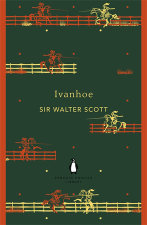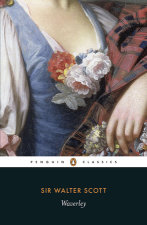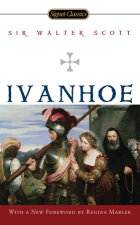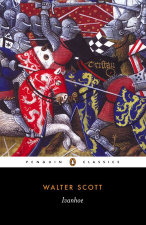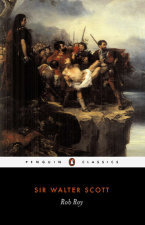Reading Guide
From Ivanhoe

Ivanhoe by Sir Walter Scott
Paperback
1. In what way-or ways-does the bloody conflict between the Normans and the Saxons serve as a mirror for Wilfred's personal struggle in the novel? Is it possible to separate the two? How does the love story inform the larger leitmotif of strife, and vice versa?
2. Certain critics have drawn attention to the novel's various anachronisms. Do you feel that Scott succeeded as far as historical accuracy is concerned? How important is historical accuracy to the narrative, in your opinion?
3. Discuss the importance of heroism and the chivalric code in the novel. How do the precepts of chivalry inform the action that occurs throughout? How do these honorable practices reconcile with the Third Crusade and all of its attendant violence?
4. Discuss the novel's language. Did you find it archaic, or did you think it helped in creating a more effective experience of a different time?
5. Discuss Cedric's unwillingness to accept Wilfred's love for Rowena. How does this illuminate the role of politics at the time? Is Cedric singularly obstinate, or do you think his view would be commonly held? Why does he change his views?
6. Discuss the significance of Rebecca's character. How do she and Isaac reveal Scott's views on the discrimination common at the time, if at all?
7. Ivanhoe is roundly held to be the progenitor of the historical romance. Do you agree with this assessment, or not? What, in your opinion, makes a book a romance?
Sir Walter Scott was born in Edinburgh in 1771. Educated for the law, he obtained the office of sheriff-depute of Selkirkshire in 1799 and in 1806 the office of clerk of session, a post whose duties he fulfilled for some 25 years. His lifelong interest in Scottish antiquity and the ballads that recorded Scottish history led him to try his hand at narrative poems of adventure and action. The Lay of the Last Minstrel (1805), Marmion (1808), and The Lady of the Lake (1810) made his reputation as one of the leading poets of his time. A novel, Waverley, which he had begun in 1805, was published anonymously in 1814. Subsequent novels appeared with the note “by the author of Waverley”; hence his novels often are called…

